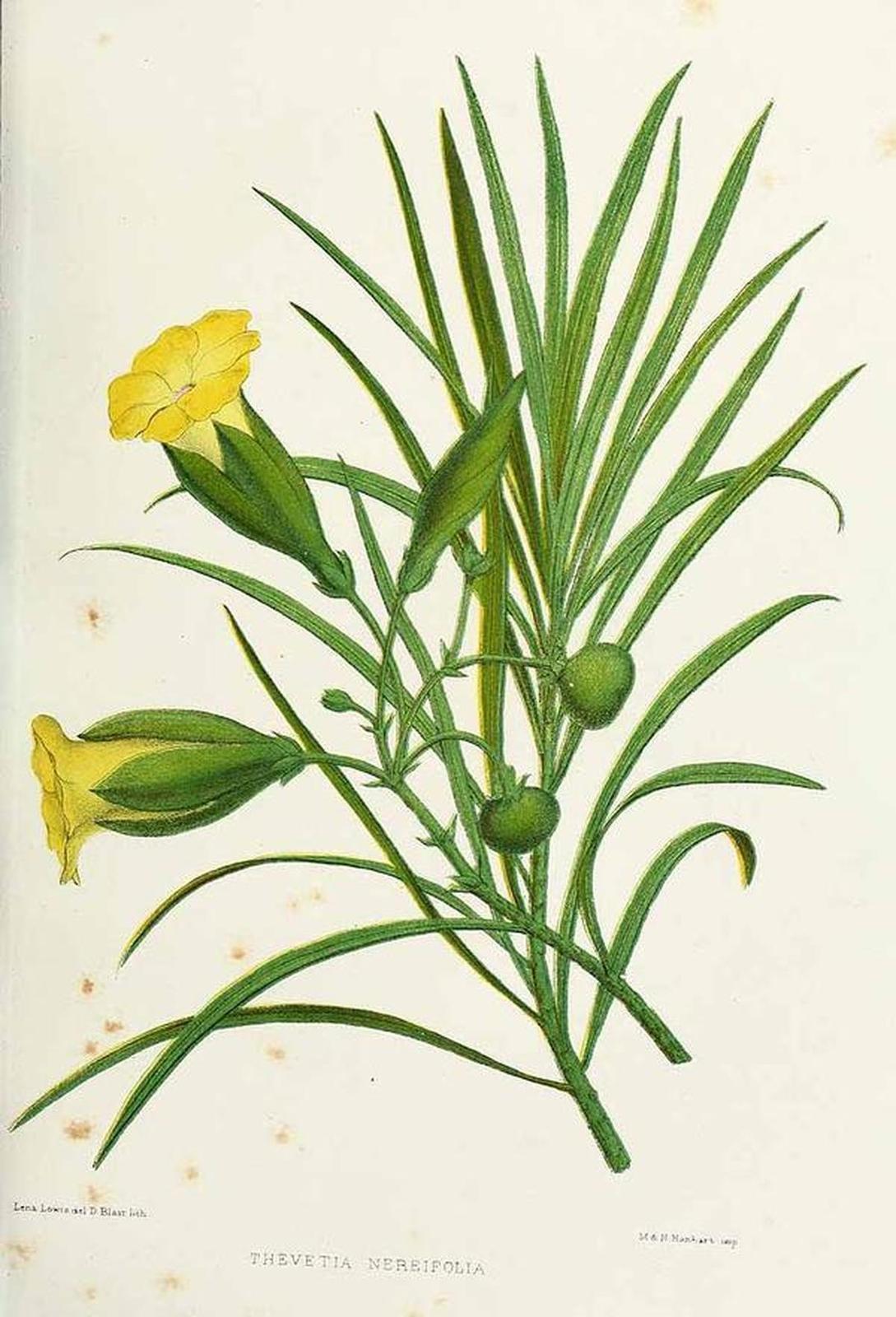Thevetia peruviana (Pers.) K.Schum.
ApocynaceaeLa campanilla amarilla es una planta americana propia de regiones tropicales. Se cultiva a escala industrial por sus semillas, de las que se extrae un aceite utilizado en la fabricación de jabones. La corteza tiene propiedades medicinales y los nativos consideran su fruto venenoso; así, en Florida se le llama con el nombre de otra planta no comestible, adelfa amarilla, aunque en realidad sus hojas son más estrechas. El nombre thevetia está dedicado al monje francés del siglo XVI Andrés Thevet, viajero extraordinario al que se le atribuye el descubrimiento de una planta que cambiaría la historia universal de las drogas y del tiempo libre, el tabaco. No obstante, mientras Thevet viajaba por el continente americano, en Sevilla el médico Nicolás Monardes (1508-1577) aprovechaba la propia condición de la ciudad como puerto y escala de América para adquirir y aclimatar en su huerto semillas y plantones de especies del Nuevo Mundo, con el fin de poder utilizarlas en sus tratamientos médicos. Entre ellas se encontraba el tabaco, del que analizó los efectos narcóticos que produce en los que toman su humo por pasatiempo o para emborracharse. Monardes sería así, junto con Thevet, uno de los introductores del consumo del tabaco en Europa. Unos doscientos años más tarde de la muerte Monardes se construiría en Sevilla, cerca de los Reales Alcázares, con los que compartía el agua de los caños de Carmona, la primera Fábrica de Tabacos de Europa, hoy sede del rectorado de la Universidad de Sevilla.
Procedencia
AmericanoCalendario
Hábitat
Morfología
 Árbol
Árbol
 Extendida
Extendida
 Simple
Simple
 Lineal
Lineal
 Alterna
Alterna
 Entero
Entero
 Cuneada
Cuneada
 Agudo
Agudo
 Perenne
Perenne
